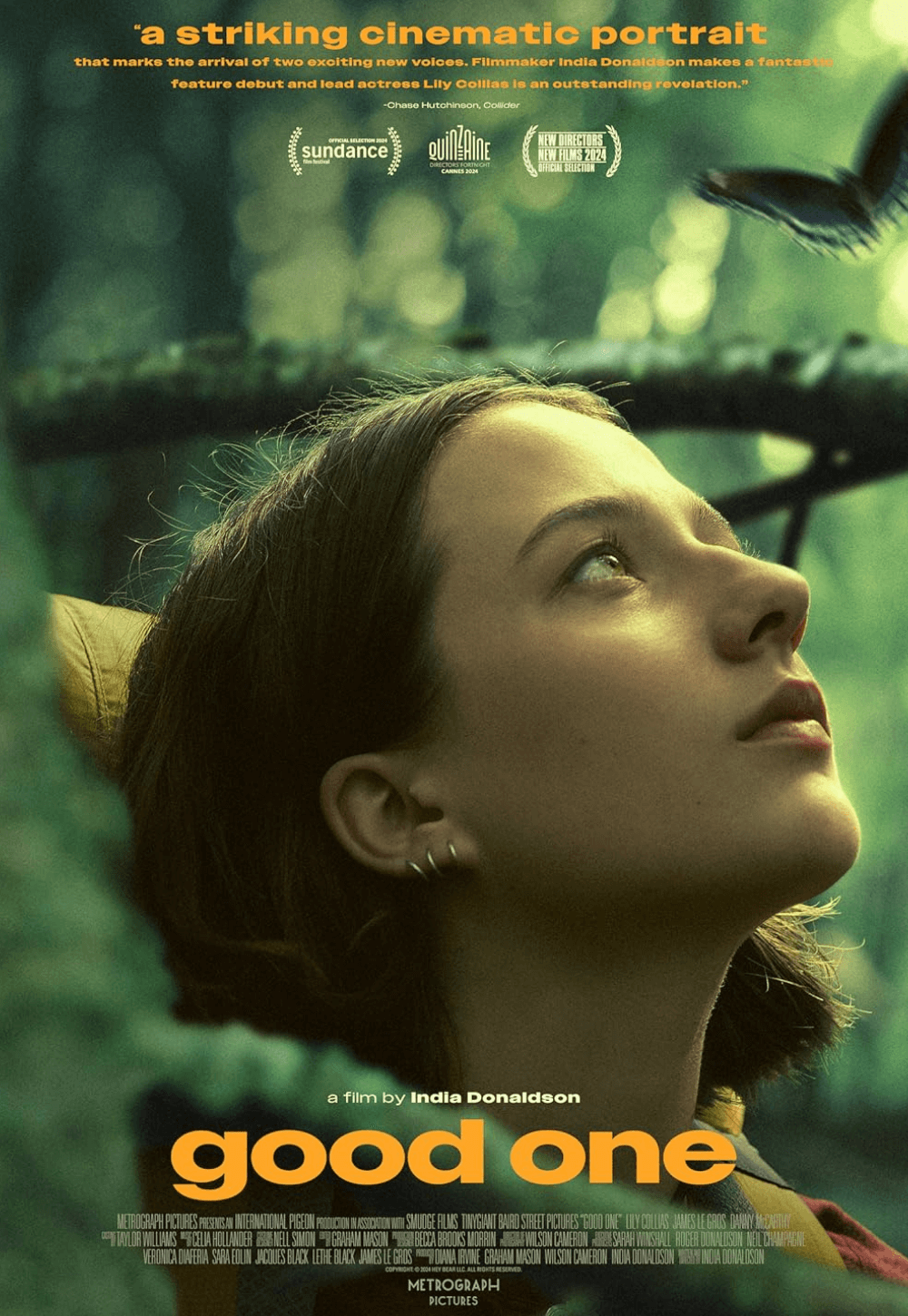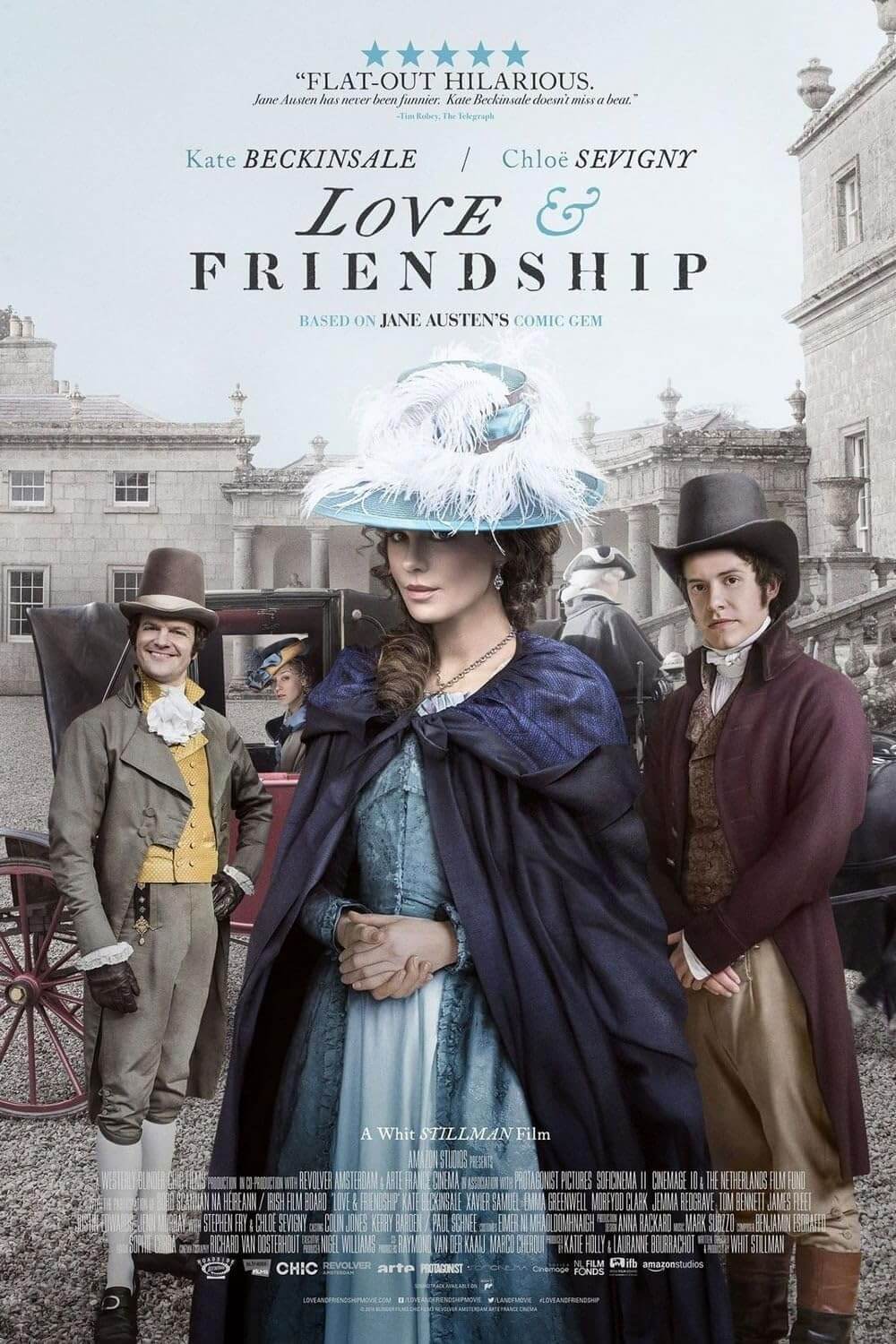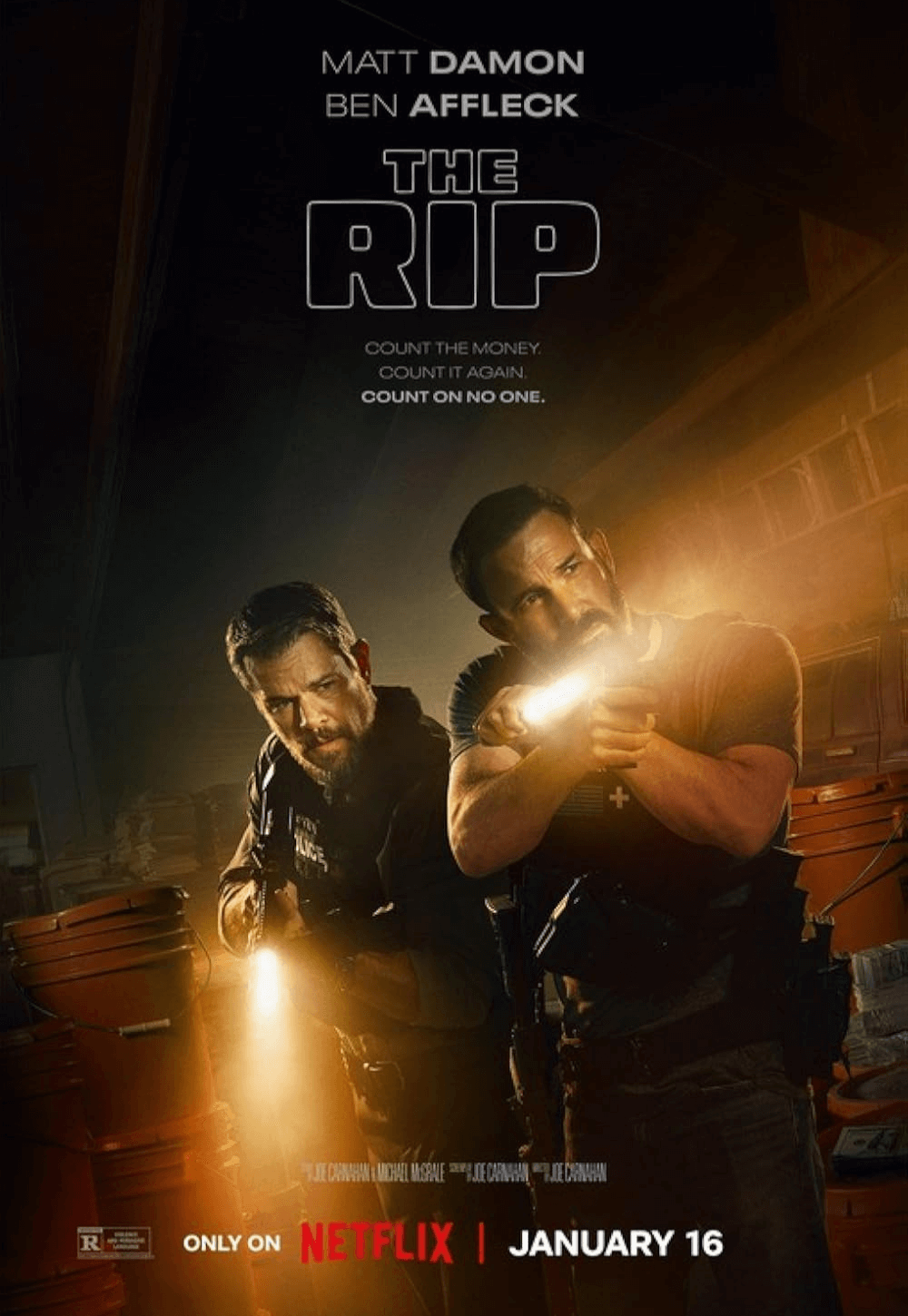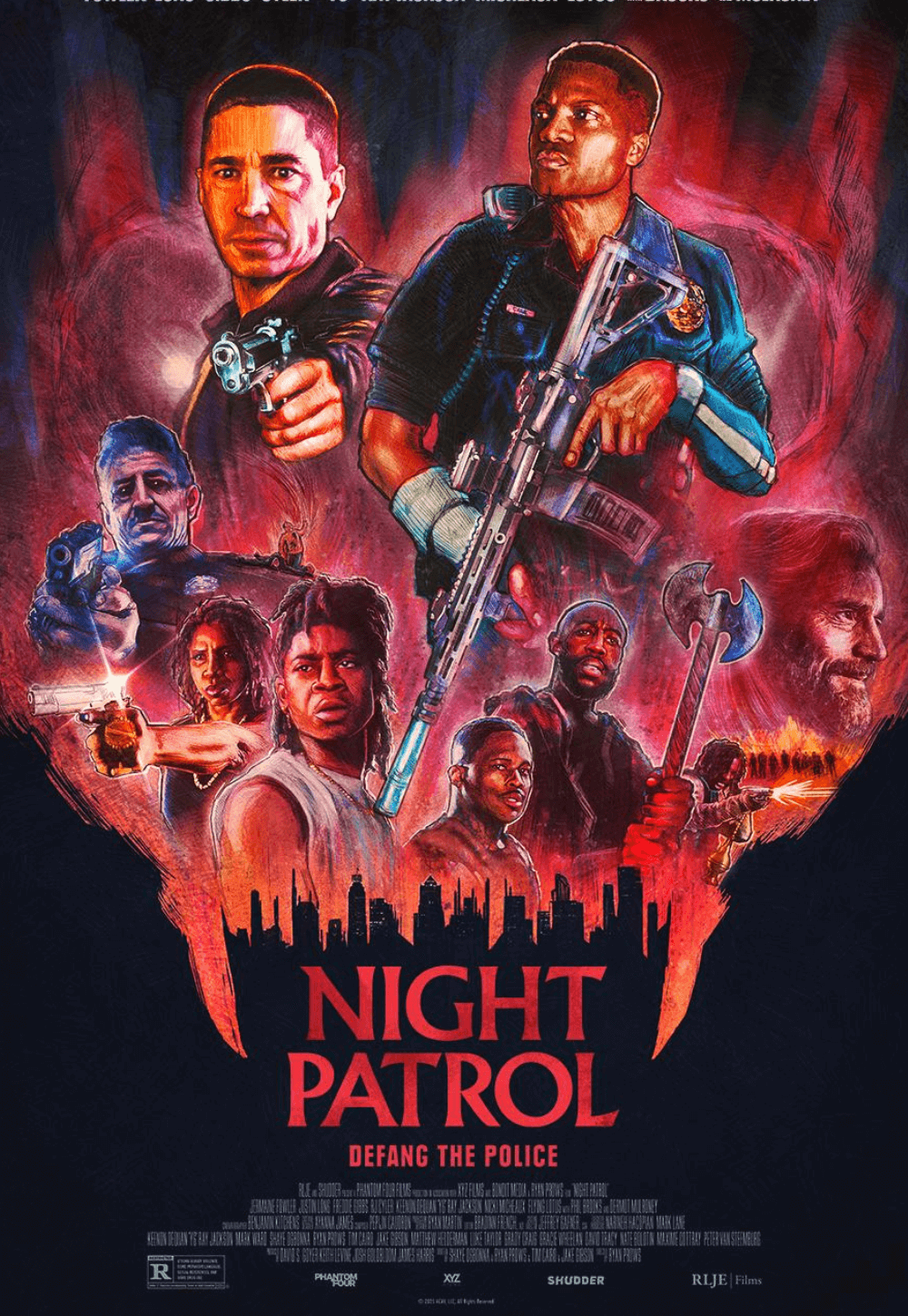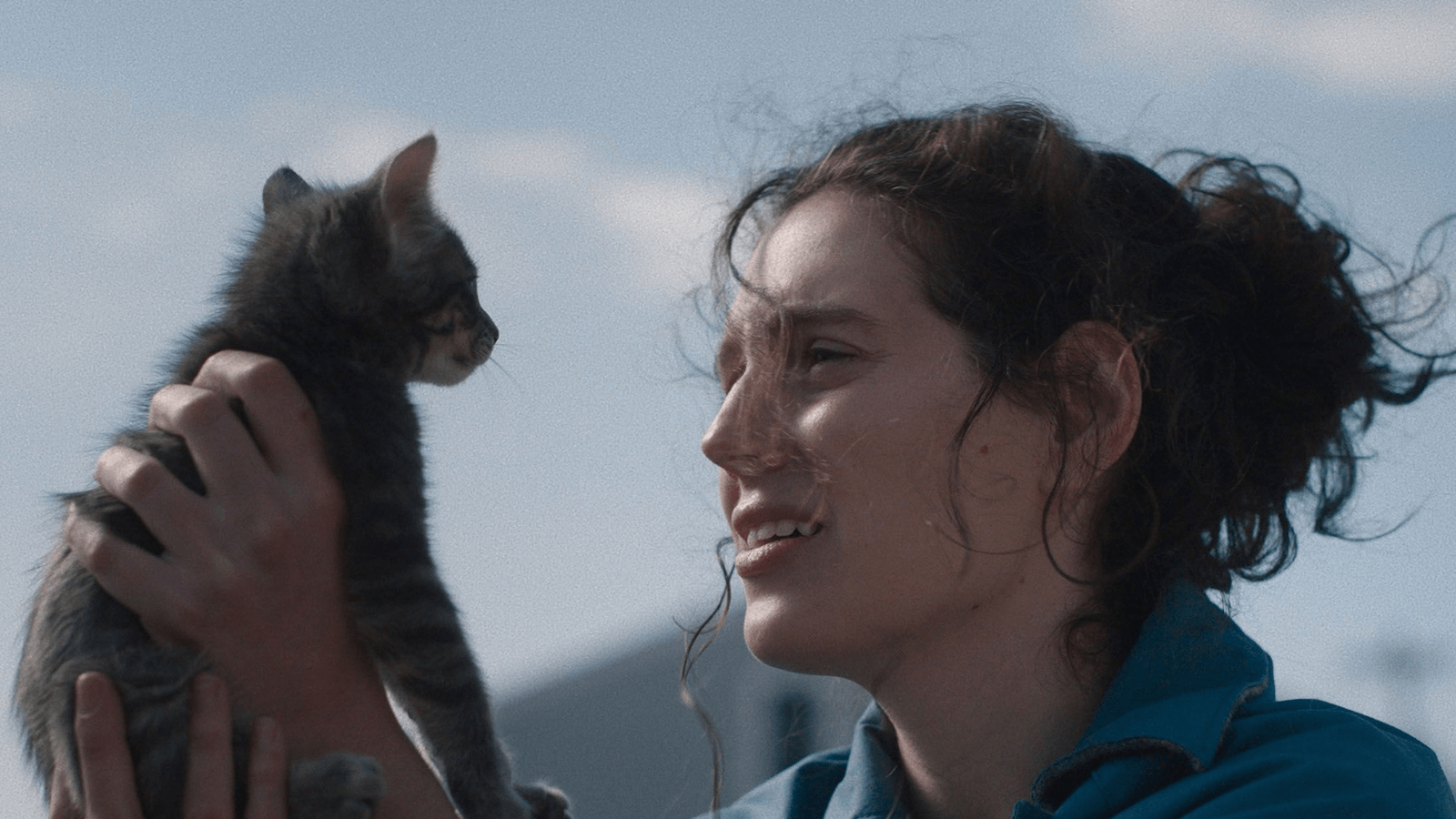
Sorry, Baby
By Brian Eggert |
With Sorry, Baby, writer-director-star Eva Victor rethinks how cinema portrays and processes trauma, and it’s not with sensationalism or buzzy terminology, but with restraint, humor, and compassion. Victor stars as Agnes, a literature professor working at the same New England college where she once attended grad school and survived a sexual assault. The film explores what it means to feel stuck and unable to see a path forward. Victor acknowledges that it’s impossible to anticipate or shield against every terrible thing that might happen, and when something does occur, how one responds is often an unconscious reaction. Some people repress the experience, only for the feelings to return with a vengeance, while others try to confront it directly and endure the psychological collision. Regardless, trauma reframes self-image, raising introspective questions: Agnes wonders how she would have been different had this never happened to her. Should she mourn the version of her that might have been? Sorry, Baby doesn’t pretend to offer answers. Instead, it gently observes how healing can emerge out of supportive friendships, empathetic strangers, plenty of time, and perhaps also a kitten.
Sorry, Baby is structured into chapters, each covering a year in the protagonist’s life. The timeline between chapters is intentionally vague, illustrating how trauma remains ever-present regardless of how much time passes. In the first scenes, Agnes’ former roommate and best friend, Lydie (Naomi Ackie), returns for a visit some months after graduating. Lydie has been busy writing a book about “gay New York stuff,” and now she’s pregnant. Given their closeness, evidenced by an unflinching honesty built on years of intimacy, Agnes feels an instant, almost parental devotion to Lydie’s unborn child. She also appears so wounded that she must reassure Lydie she won’t harm herself. Much of Sorry, Baby explores how her assault—which Agnes and Lydie call the “Bad Thing”—has left her dissociated, emotionally suspended, and detached. She occasionally feels comfortable with someone other than Lydie, such as her neighbor, Gavin (Lucas Hedges), with whom she occasionally has sex. Then again, it can be easier to confide in a stranger, like Anges’ frank conversation with a kindly sandwich shop owner (John Carroll Lynch).
The chapter titled “The Year with the Bad Thing” recounts how Agnes studied under Preston Decker (Louis Cancelmi), a professor and author. He flatters Agnes with compliments about her “extraordinary” thesis paper, and Lydie remarks that Agnes should have sex with him. But Agnes doesn’t want that. Instead, they meet at his office to discuss her thesis. For their next meeting, he changes the location from his office to his house at the last minute. From outside, we see that she spends all evening and part of the night there, before rushing out, boots in hand. In a single shot, she walks back to her car and then drives home, shaken but also on autopilot—an elegant way to visualize the “Bad Thing” without showing it. The next day, she reports the incident to the staff, but by that time, Decker has resigned, making it impossible for management to take action. The two women representing the school give Agnes hollow, performative empathy: “We know what you’re going through. We are women.”—words spoken like aliens trying to convince her of their human disguises.
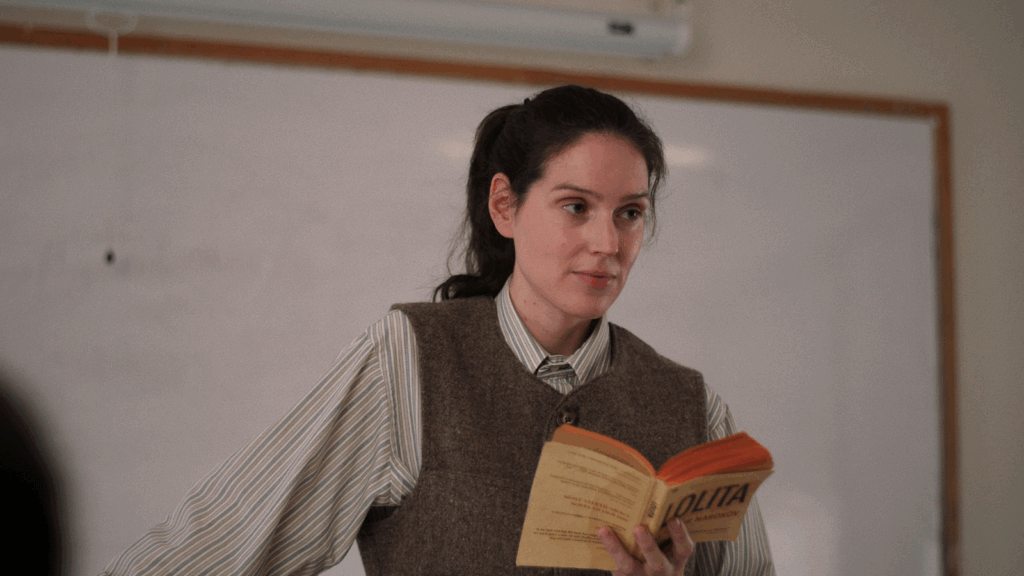
Victor shows how what happened has, in many ways, stunted Agnes. When Anges initially describes the assault to Lydie—a vulnerable scene that finds Agnes in the bathtub—she talks about how she didn’t immediately process what was happening. She reacted with what psychologists might call “fawning,” by over-accommodating her assaulter to avoid conflict and survive that moment. Afterward, she refers to adulthood as a mysterious and elusive state of being. Agnes admires Lydie for being “a fully fledged adult,” and when asked about her future or having children, she remarks, “I can’t really imagine myself old.” This may be the typical millennial curse of feeling ill-equipped for adulthood, but it’s more likely connected to her assault. Whereas some might distance themselves from those surroundings to avoid any associations with the assault, she takes a part-time teaching job at the same college and lives in the same house. When the school promotes her to a full professor, she accepts Decker’s old office without protest. At home, in place of a curtain, she tapes up pages of her thesis, complete with Decker’s edits marked in red, on her window—a constant reminder of Decker and what he did. She takes down one page after she lands her professorship. Maybe that means she’s healing. But how many years will it take before she takes down every page?
All of these details amount to brushstrokes on a larger canvas. Victor never overemphasizes them in pointed speeches or other dramatic devices. They allow the viewer to notice and, gradually, understand Agnes’ unconscious reactions. Subtle aesthetic choices underscore this. Cinematographer Mia Cioffi Henry blurs the edges of the frame, as though Agnes is looking through an old window at her life. Another clever touch emerges in Caity Birmingham’s production design of Agnes’ home: The cozy, welcoming interiors, flush with books and blankets, are accented by Lia Ouyang Rusli’s score of electronic notes and ambient noise. But at night, when Agnes is alone, Victor turns the house into an empty, scary space—strange sounds from outside stir Agnes awake, and the relaxed home becomes a haunted house. In one jarring scene, her cat gifts her a half-dead mouse. Horrified, Agnes euthanizes the rodent by smashing it inside a paper bag—right on her bed. And that prompts another unexpected emotional response.
Sorry, Baby plays as though it originated from an unfathomably personal place, and it’s told with a distinct voice—qualities that producer Barry Jenkins recognized when Victor sent him the script. Jenkins, who has supported many young filmmakers since his breakthrough with Moonlight (2016), had already reached out to Victor about their comedic videos on social media. His production company, Pastel, agreed to produce the project, and A24 acquired the distribution rights after Sorry, Baby premiered at this year’s Sundance Film Festival. It’s a fitting Sundance debut, as Victor adopts the tone and visual style of 1990s American independent films—qualities shared with post-mumblecore indies, such as those by Cooper Raiff, which walk the line between comedy and tragedy (see Shithouse, 2020, in which Victor costars).
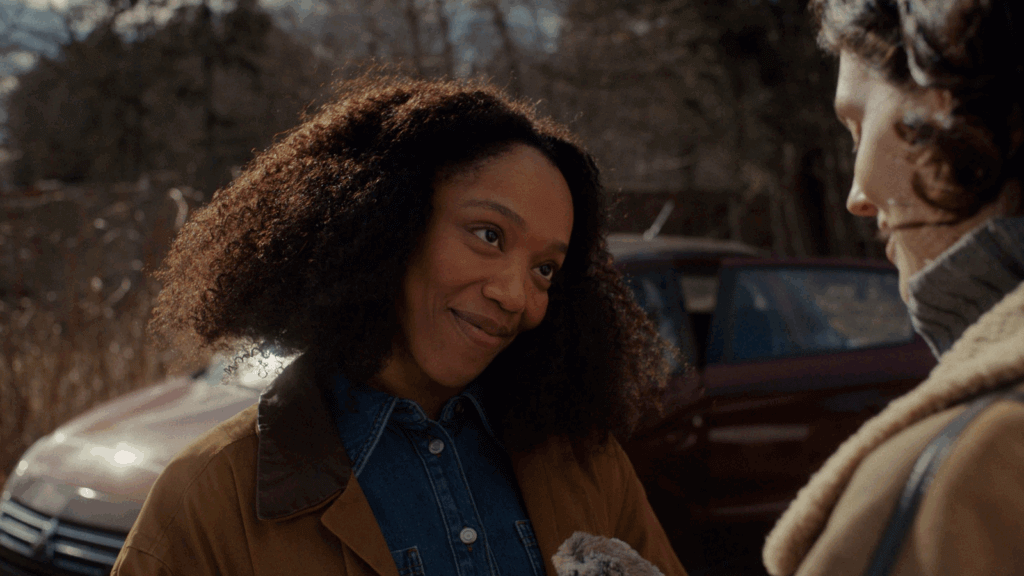
More heartening than Sorry, Baby’s look at Agnes’ trauma response is her moving friendship with Lydie. From the start, before we understand the context, Victor shows Lydie as an unselfish listener who understands Agnes and knows when her friend needs her. At a dinner among former peers at the college, the typically blunt Natasha (Kelly McCormack) alludes to Agnes’ past, and Lydie’s hand goes to Agnes’ under the table for support. When she returns from the incident with Decker, trancelike and unsure of what just occurred, telling Lydie about it allows her to process the incident. Their friendship is one where simply being there and listening leads to a profound understanding of each other. So when Agnes comes home with a stray kitten, Lydie tells her, “Whatever you need.” Their friendship never traps Lydie in Agnes’ inward-facing emotional state, though; she never feels obligated to put her life on hold to help her friend, and Agnes doesn’t expect her to. Their unselfish bond is the heart of this film.
Sorry, Baby is an authentic and thoughtfully observed film of quiet devastation, surprising humor, and emotional insight. Quirky but not instantly knowable, Agnes must be read. Note how she embraces the kitten she finds in the street (“I guess, um—yup, I love you”) because she not only yearns for companionship but also needs to be a protector. Or consider what her views on justice in a brief chapter about serving on a jury say about her. “I don’t see myself,” Agnes says at one point, referring to her future, aging, and having children. However, Agnes remains unable to gain perspective on her life; the “Bad Thing” has narrowed her focus in ways, broadened it in others. Just as Sorry, Baby presents a warm, albeit wounded view of Agnes, it’s also a frustrating look at how the system fails people in her situation. All Agnes can do is hope nothing so life-altering will happen to Lydie’s infant, but that’s unrealistic. “I’m sorry that bad things are gonna happen to you,” she tells the newborn in a crushing scene, where she vows to always be there. Victor shows that, although Agnes is irreparably changed, she recognizes that friendship can help calm her wounds. It’s at once an anguished look at a reality for many women and a comforting acknowledgement that good friends can help you face the bad things when they come along.
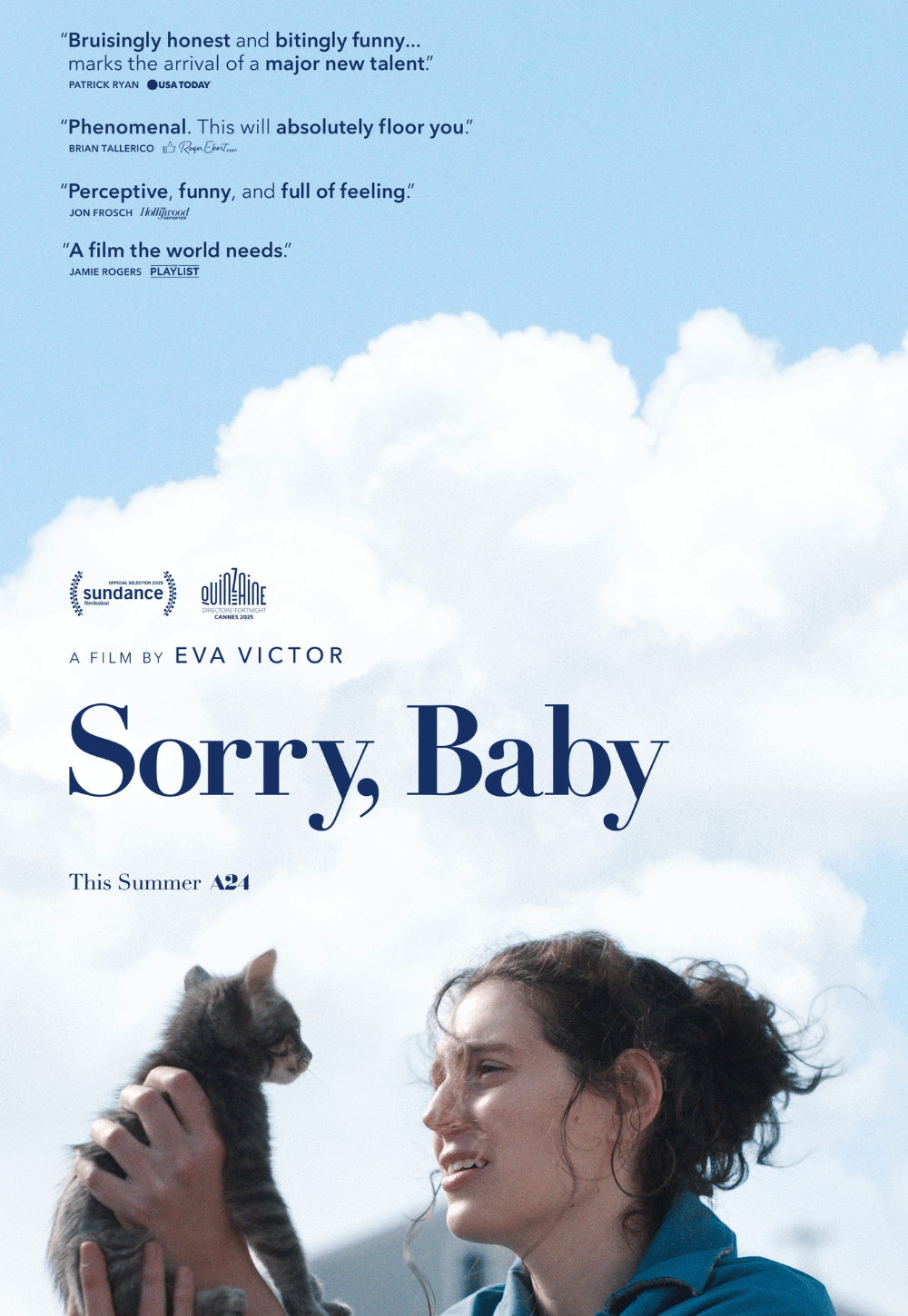
Thank You for Supporting Independent Film Criticism
If the work on DFR has added something meaningful to your love of movies, please consider supporting it.
Here are a few ways to show your support: make a one-time donation, join DFR’s Patreon for access to exclusive writing, or show your support in other ways.
Your contribution helps keep this site running independently. However you choose to support the site, please know that it’s appreciated.
Thank you for reading, and for making this work possible.
Brian Eggert | Critic, Founder
Deep Focus Review



